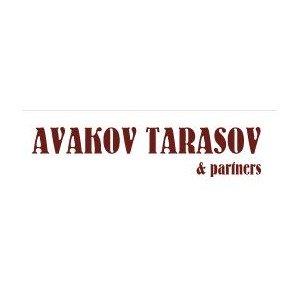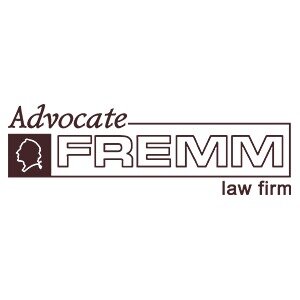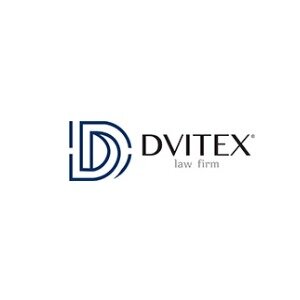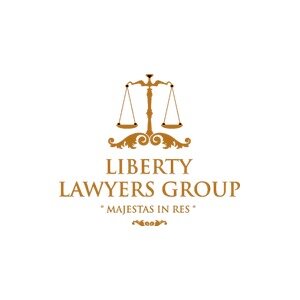Best Natural Resources Lawyers in Russia
Share your needs with us, get contacted by law firms.
Free. Takes 2 min.
Or refine your search by selecting a city:
List of the best lawyers in Russia
About Natural Resources Law in Russia
Russia is endowed with a vast array of natural resources, making it a global powerhouse in natural resource production. These resources include significant reserves of oil, natural gas, coal, minerals, timber, and fresh water. The governance of these resources is subject to a complex array of laws and regulations, often reflecting the region's critical importance to the nation's economy and environmental health. Natural Resources Law in Russia covers the management, use, and protection of these resources, with legislative frameworks established to ensure sustainable development and economic progress.
Why You May Need a Lawyer
Legal assistance may be required in a variety of contexts in the field of natural resources. Common situations include:
- Acquiring licenses and permits for exploration and exploitation.
- Compliance with environmental regulations and standards.
- Negotiating contracts and agreements in the resource extraction industry.
- Resolving disputes related to resource ownership or environmental impact.
- Engagement in mergers, acquisitions, or other financial transactions involving natural resources companies.
- Addressing issues of indigenous rights and community impact in resource development projects.
Local Laws Overview
Russian law comprises several legal codes and regulations focusing on various aspects of natural resource management. Key aspects include:
- Subsoil Law: Governs the conditions and procedures for utilizing subsoil resources, including oil and gas extraction.
- Forestry Code: Regulates the use and protection of forests, emphasizing sustainable forestry practices.
- Water Code: Outlines the management and protection of water bodies, ensuring sustainable use and quality control.
- Environmental Protection Law: Sets forth requirements to protect the environment from the adverse impacts of industrial activities.
- Land Code: Determines the legal framework for land use, including agricultural and industrial activities tied to natural resources.
Frequently Asked Questions
What licenses are required to extract natural resources in Russia?
Extracting natural resources in Russia typically requires obtaining subsoil licenses, environmental permits, and often negotiates production sharing agreements, depending on the resource type and location.
Are there restrictions on foreign companies investing in Russian natural resources?
Yes, foreign investments are subject to scrutiny, particularly in strategic sectors such as oil and gas. Restrictions and additional approvals may apply.
What environmental regulations apply to natural resource exploitation?
Activities must comply with federal and regional environmental regulations focusing on minimizing ecological impact and promoting sustainability. This may involve Environmental Impact Assessments (EIA).
How is land ownership related to resource extraction rights?
Resource extraction rights are distinct from land ownership and are usually granted by the state through licenses. Landowners may negotiate easements and compensation where applicable.
How are indigenous rights considered in resource development projects?
Russian law acknowledges the rights of indigenous peoples, requiring consultation and often cooperation with local communities affected by resource projects.
What disputes might arise in natural resources law?
Disputes may arise over issues such as land access, environmental damage, licensing compliance, and contractual disagreements in resource exploitation agreements.
What role do environmental NGOs play in natural resources law?
NGOs often act as advocates for environmental protection and sustainability, participating in public consultations and monitoring compliance with legal standards.
What taxes or royalties are applicable to natural resource extraction?
Taxation on resource extraction includes mineral extraction tax, profit tax, and various environmental fees and charges, often detailed in specific fiscal regimes applicable to each resource type.
Can resource licenses be transferred or sold?
Licenses generally require governmental approval for transfer and must meet specific legal standards to ensure compliance and continued responsibility.
How do I seek remediation for environmental damage caused by resource extraction?
Claims for environmental remediation can be pursued through legal action, often requiring an expert assessment and adhering to specific procedural laws.
Additional Resources
For further information and assistance, consider consulting the following resources:
- The Ministry of Natural Resources and Environment of the Russian Federation: Provides regulatory oversight and policies.
- Federal Service for Supervision of Natural Resources (Rosprirodnadzor): Oversees compliance and enforcement of environmental laws.
- The Russian Geological Research Institute (VSEGEI): Offers scientific data and expertise related to geology and subsoil use.
- World Wildlife Fund (WWF) Russia: Engages in conservation efforts and policy advocacy related to natural resource use.
Next Steps
If you require legal assistance in the field of natural resources in Russia, consider the following steps:
- Identify reputable law firms or legal advisors specializing in natural resources law with experience in Russian regulations.
- Prepare documentation and background information relevant to your situation, including any existing licenses, contracts, or disputes.
- Consult with a professional to discuss your specific needs, potential legal issues, and possible strategies for resolution.
- Engage in open communication with legal experts to ensure compliance and to navigate the complex regulatory landscape effectively.
Lawzana helps you find the best lawyers and law firms in Russia through a curated and pre-screened list of qualified legal professionals. Our platform offers rankings and detailed profiles of attorneys and law firms, allowing you to compare based on practice areas, including Natural Resources, experience, and client feedback.
Each profile includes a description of the firm's areas of practice, client reviews, team members and partners, year of establishment, spoken languages, office locations, contact information, social media presence, and any published articles or resources. Most firms on our platform speak English and are experienced in both local and international legal matters.
Get a quote from top-rated law firms in Russia — quickly, securely, and without unnecessary hassle.
Disclaimer:
The information provided on this page is for general informational purposes only and does not constitute legal advice. While we strive to ensure the accuracy and relevance of the content, legal information may change over time, and interpretations of the law can vary. You should always consult with a qualified legal professional for advice specific to your situation.
We disclaim all liability for actions taken or not taken based on the content of this page. If you believe any information is incorrect or outdated, please contact us, and we will review and update it where appropriate.
Browse natural resources law firms by city in Russia
Refine your search by selecting a city.

















